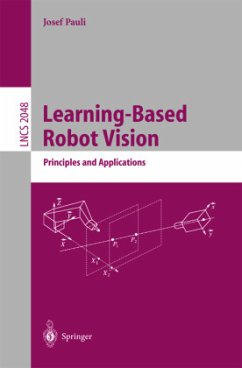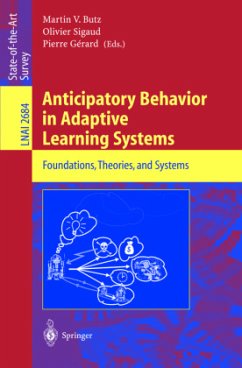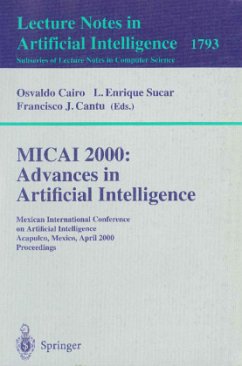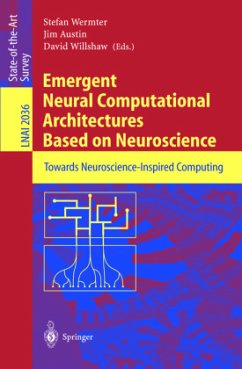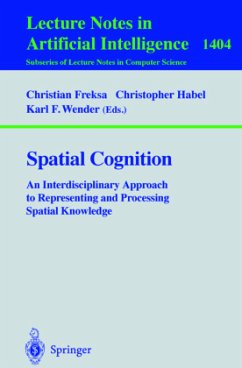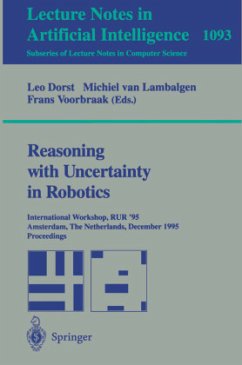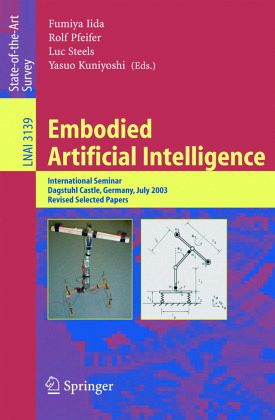
Embodied Artificial Intelligence
International Seminar, Dagstuhl Castle, Germany, July 7-11, 2003, Revised Selected Papers
Herausgegeben: Iida, Fumiya; Pfeifer, Rolf; Steels, Luc

PAYBACK Punkte
20 °P sammeln!
Originating from a Dagstuhl seminar, the collection of papers presented in this book constitutes on the one hand a representative state-of-the-art survey of embodied artificial intelligence, and on the other hand the papers identify the important research trends and directions in the field.Following an introductory overview, the 23 papers are organized into topical sections on- philosophical and conceptual issues- information, dynamics, and morphology- principles of embodiment for real-world applications- developmental approaches- artificial evolution and self-reconfiguration
Originating from a Dagstuhl seminar, the collection of papers presented in this book constitutes on the one hand a representative state-of-the-art survey of embodied artificial intelligence, and on the other hand the papers identify the important research trends and directions in the field.
Following an introductory overview, the 23 papers are organized into topical sections on
- philosophical and conceptual issues
- information, dynamics, and morphology
- principles of embodiment for real-world applications
- developmental approaches
- artificial evolution and self-reconfiguration
Following an introductory overview, the 23 papers are organized into topical sections on
- philosophical and conceptual issues
- information, dynamics, and morphology
- principles of embodiment for real-world applications
- developmental approaches
- artificial evolution and self-reconfiguration





